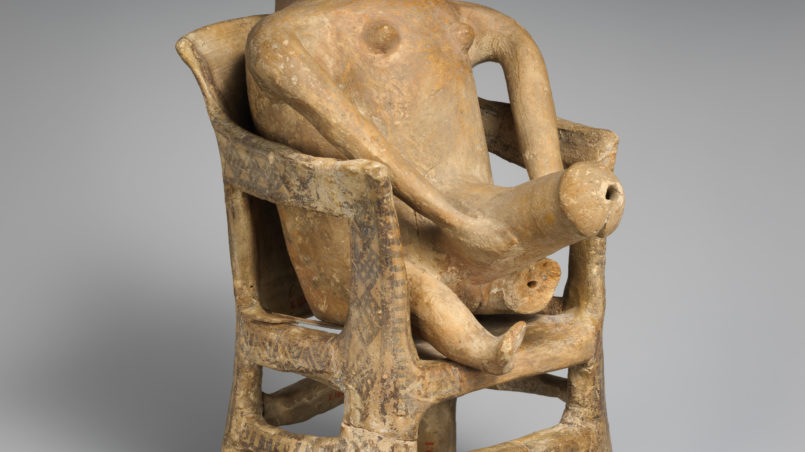Almost every woman I know has been sexually harassed, most of us many, many times. And that begs the statistical question: Have almost all the men I know sexually harassed someone?
Just writing that sentence makes me uncomfortable. I’m accusing my family, friends, and colleagues of assault, a crime. But from a numbers perspective, this can’t be just a few men running around the country grabbing our lady parts.
When I ran the idea by a guy friend, a man I’ve adored and respected for years, I fully expected that he would mansplain away my logic. Instead, his response was: “Absolutely.”
It was one of the most hopeful things I’ve heard in a long time because it was the beginning of a conversation rather than an argument.
I want the men I know to be the good guys, not someone else’s creeps.
But I have been sexually harassed by men I counted as friends and colleagues. Men I’ve run projects with, who I’m Facebook friends with, whose wives and children I know. It’s happened often enough that I have a standard response for defusing the situation: “You know that line you’re not supposed to cross it? It’s back there.”
For years, I worked as an on-set costumer for films. Joking my way through sexual harassment, deflecting it, and ignoring was an unwritten part of the job description. Flirting and sexual innuendo went with the paycheck. It probably still does. And most of the time, it was in all good fun.
But there’s a big difference between joking around and assault. Assault is, according to Wex Legal Dictionary, “Intentionally putting another person in reasonable apprehension of an imminent harmful or offensive contact.”
For a woman, whether we react with rage, humor, or diplomacy, unwelcome sexual conduct carries with it “reasonable apprehension of an imminent harmful or offensive contact.”
While at work, I have been exposed to more penises I can count: Dropped towels, strategically flapping robes, open bathroom doors, men who insisted on going commando, and ones who just took it out. (Guys, in case you’re still wondering: We don’t want to see your penis. And if a woman laughs when you pull it out, she’s not enjoying herself. She’s scared.)
Then there were the situations that still haunt me: The icon who routinely put his hands on me. The rising star who covered his trailer in porn so degrading and disgusting that I’ll never be able to unsee it. The actor who unzipped his fly and offered me his penis in front of the entire film crew.
Yes, my experiences are rooted in the entertainment industry because that’s where I’ve spent most of my professional life. But lawyers, waitresses, ad executives, women: we’ve all dealt with it, often, with a full audience. Degrading a woman in front of others seems to be part of fun. A way for some men to show off.
And later, it’s “locker room talk.” A story a guy tells an Access Hollywood host, bragging about forcibly kissing women, groping them, and grabbing their crotches.
Even though this often happened out in the open, every single time, I was left to deal with the situation on my own- partly because I put on a Dorothy Parker tough girl mask, but mainly because it’s more comfortable for everyone else to just ignore what’s happening. Nobody stepped up and said, “Stop that!”
Instead, the responsibility for objecting to the harassment is dumped on the most vulnerable person in the room – the victim.
And when you do speak up, most of the time you learn that nobody’s got your back.
You’re told:
- He was a joking.
- You’re overreacting.
- I didn’t notice anything.
- It didn’t seem to bother you at the time. You were laughing.
- Don’t make waves.
- Why didn’t you say something sooner?
And my personal favorite:
- He does that to everyone. You’re not special.
Gee, I didn’t feel special when he pushed his hand up under my skirt. I felt violated and trapped. Sexual harassment/assault/misconduct – whatever you want to call it – is an act of aggression. It’s not a compliment.
When you object to men’s behavior towards other women, suddenly it’s your problem:
- You don’t have a sense of humor
- You’r oversensitive.
- It’s your own issue.
- You’re being jealous. (Jealous of what? Needing a decontamination shower?)
Every one of these responses is about putting women in their place. Shutting us up. And it works. We were schooled at a young age about the acceptable-misbehavior of boys:
- He’s mean to you because he likes you.
- If you react, it will just get worse.
- Boys will be boys.
It’s one of the privileges of being male. Behavior is excused. If a girl has a problem with it, the fault is with her.
If we are truly disgusted by the daily stories of powerful men and their sexual misconduct, then we need to admit this goes far beyond the politicians and movie stars that make such good headlines. No, not every man rapes women or pulls out his dick during a business meeting, but every man has made a woman feel deeply uncomfortable and trapped, at some point.
And all of us – men and women – have remained silent when something happened to someone else. We’ve laughed along uncomfortably or ignored the whispers:
- It’s not that big a deal.
- I wouldn’t want to embarrass him.
- If she’s okay with it, it’s not my place to speak up.
And when you do speak up, we have all wanted to not believe the victim–just a little:
- Why didn’t she come forward sooner?
- He doesn’t seem like someone who would do that. Keillor.
- If she doesn’t want men to notice her, she should down play her looks.
- Or, she’s not that hot. Why would he bother?
- She’s got to be exaggerating.
- She just wants attention.
We have all protected a man who “misbehaved.” We have all played a part in this. We want to excuse our guys.
It’s easy for me to be outraged by Trump and Roy Moore. I’m disgusted by both of them in general; sexual assault fits in perfectly with my narrative of who they are. Anyone who’s spent time in Hollywood knows that Harvey Weinstein is a pig, no big shock there. And there’s no real surprise with Louis CK, if you’ve paid attention to his act. He practically makes a living on sexual misconduct. Still, I was sorry to see him fall. I admired many of his business decisions.
I actively didn’t want to believe it about Garrison Keillor. And Al Franken just kills me.
If we actually care about ending sexual harassment. If we care about equality. We only have a few options. The most logical is a grand social experiment, in which all men are demoted to entry-level positions and domestic work until a few of them prove themselves to be to professionally and emotionally responsible human beings who are also exceptionally talented.
Short of that the immediate solution we, both men and women, must make sexual harassment completely unacceptable. We need to celebrate the people who speak out and shame the perpetrators. And as outrageous as it is, I’m willing to accept the idea that some people really don’t get it. If that’s the case it becomes our responsibility to educate these people:
- Stepping in for victims, rather than waiting to see if they can “handle it.”
- Believing people when they speak up.
- Calling harassers on their actions.
- No longer telling our children that “boys are just like that.”
- Shutting down “locker room talk” as soon as it starts. Nobody needs to brag about graphic details of their exploits if they actually respect their partners.
- Ignoring media that celebrates sexual harassment as cool and entertaining.
- Accepting criticism, as if someone is telling you have salad in your teeth, rather than responding with an attack.
And probably most important: having conversations, rather than arguments.

